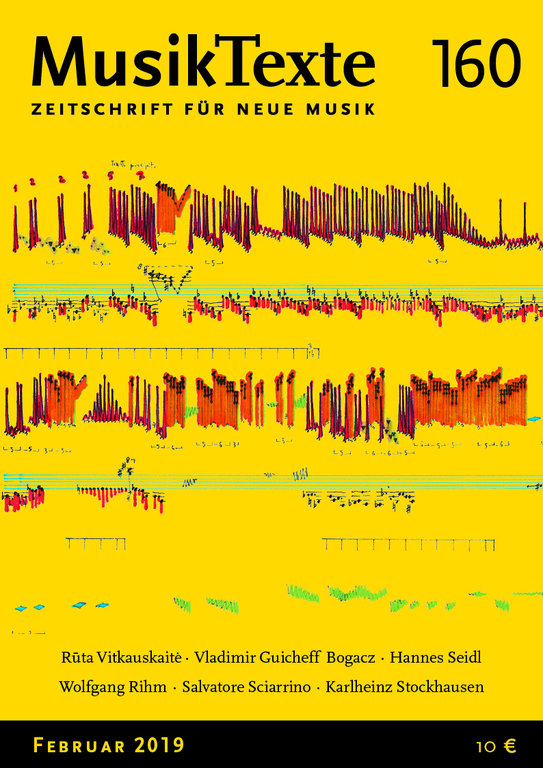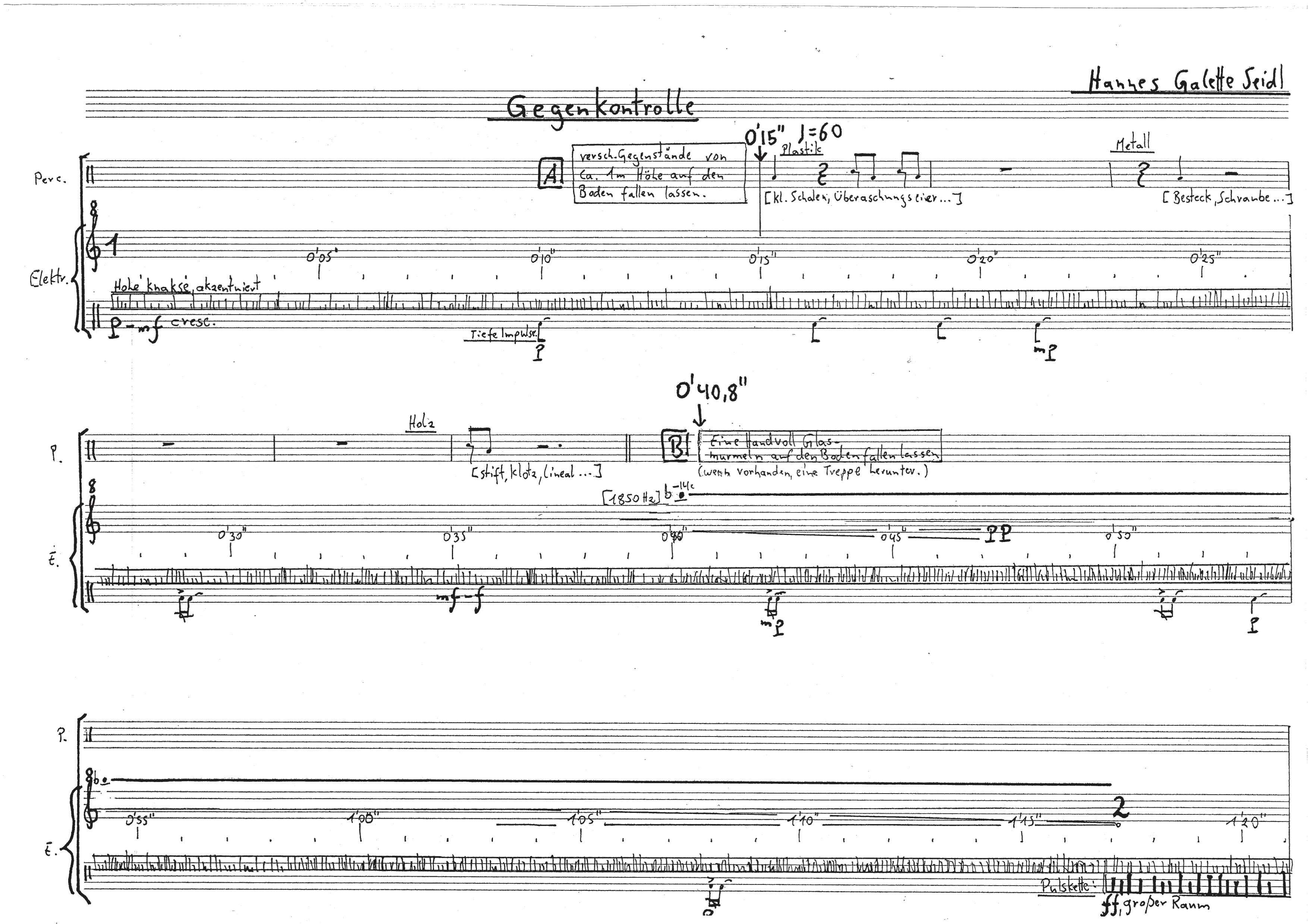Gegenkontrolle
Finished 2003
Schlagzeug und Vierkanal-Elektronik
duration:
17'
Fallen ist ein rauschhafter Zustand.
Sich fallen zu lassen, rückwärts in die Arme eines Anderen, vom Sprungturm ins Wasser, aus dem Flugzeug, in die Ziellosigkeit oder in den Idealismus, ins Ungeplante, Utopielose oder in die Utopie. Man gibt die Kontrolle über sich ab an eine andere Instanz (Chaos, Ideal, Gott, Schwerkraft), um sich dieser dann zu überlassen, entkörperlicht.
Der Einsatz von Musik in Kaufhäusern, Cafes, Toiletten, Clubs, öffentlichen Plätzen, U-Bahnstationen etc. soll ebenso einen rauschhaften Zustand herbeiführen. Er fordert auf, sich fallen zu lassen, der jeweilige Raum wird „zugedröhnt“, er wird verändert, sakralisiert.
Das Fallenlassen von (großen, harten) Gegenständen in einem Raum hat dagegen eine realisierende Wirkung in Bezug auf diesen. Es profaniert den Raum und stört so den einlullenden Vorgang des Einsatzes von Hintergrundmusik.
„Gegenkontrolle“ ist eine Geste, eine Bewegung. Etwas loszulassen, achtlos hinzuschmeißen, und sich dieser Lust(losigkeit) hinzugeben, fallen zulassen.
To fall is an inebriate situation.
To let oneself fall, backwards into the arms of someone else, out of a plane, from a diving platform, to fall into idealism, aimlessness, utopia, realism or into the unplanned future.
One gives away control to another authority (chaos, an ideal, a god, gravitation) to entrust oneself to it, disembodied.
The use of music in shopping malls, cafés, toilets, clubs, public places, subway stations et. al. is as well supposed to produce an inebriate situation. It asks to loose oneself, to enjoy. The music is supposed to drown the original noise of a place and to sacralize it.
In opposite, dropping (hard) objects in a room produces a profane impression. It disturbs the lulling effect of background music and de-sacralizes the place.
"Gegenkontrolle" in a gesture, a motion, to let off something, to drop objects careless, and to abandon to this inactivity, to let loose.



